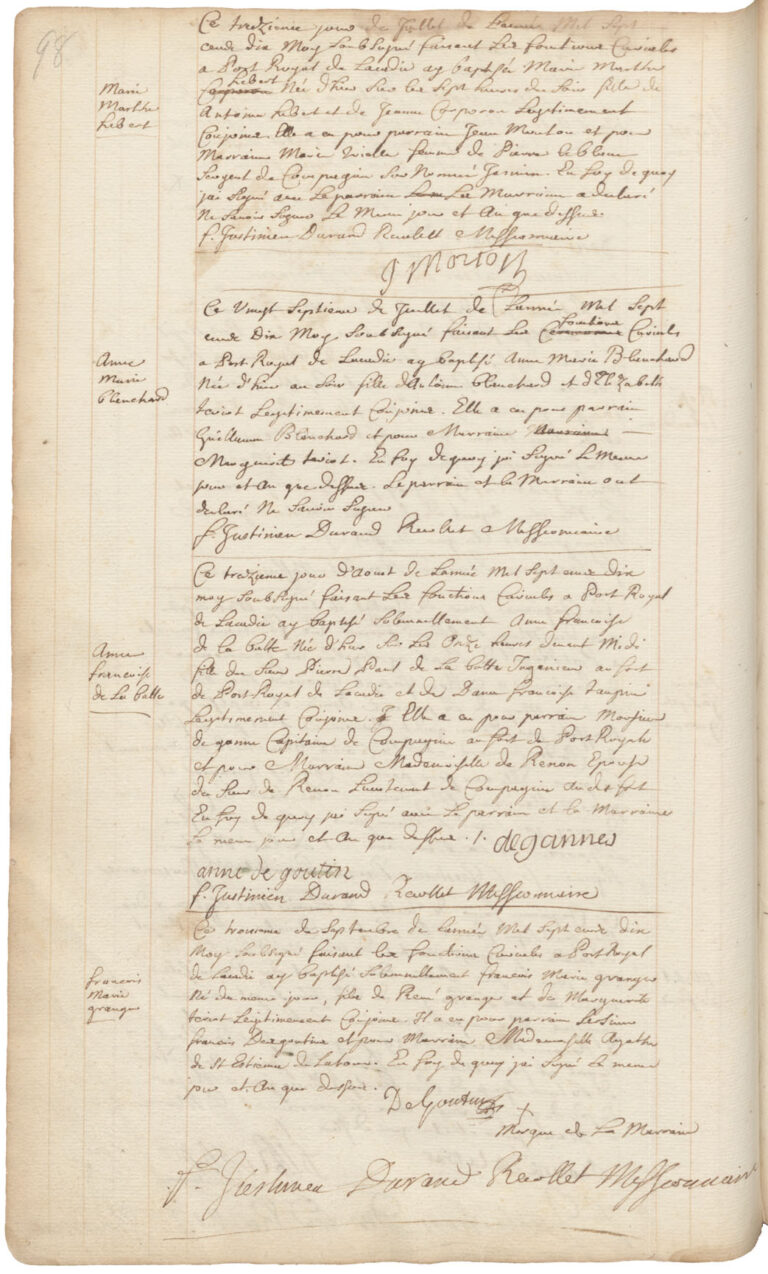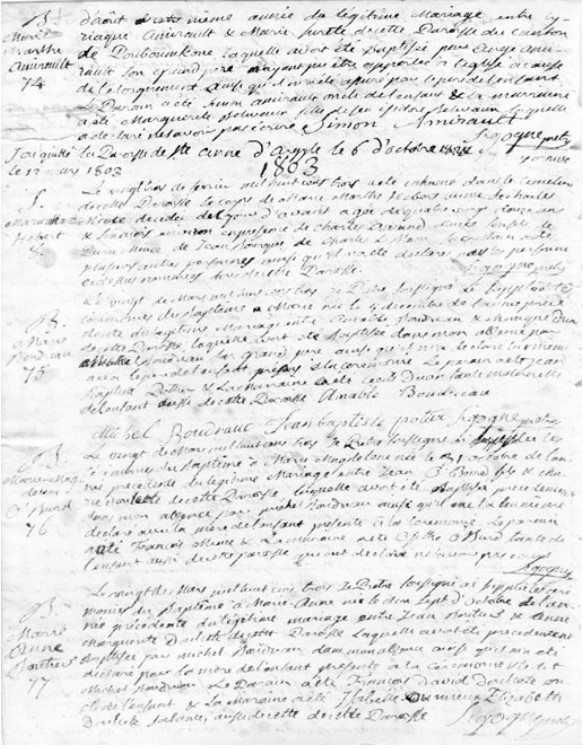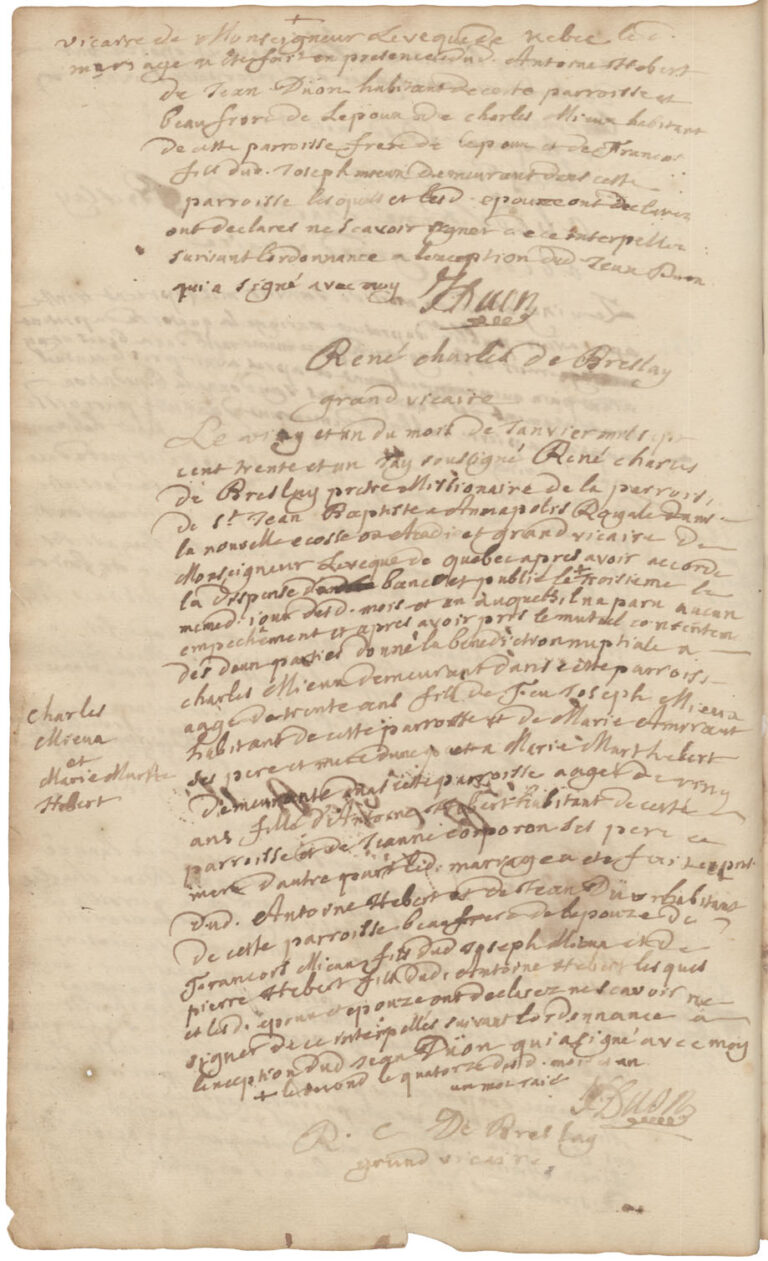
marie marthe hebert
Date of Birth
July 12, 1710
Place of Birth
Port, Nova Scotia, Canada
Towns / Cities Moved Into
Port, Nova Scotia, Canada
Shelbume, Nova Scotia, Canada
Known Occupation
-
Religion
Catholic
Death Information
Year of death
1803
Place of death
Shelbume, Nova Scotia, Canada
Cause of death
-
Obituary

Parents

Jeanne Corporon

Antoine Hebert
Marital Status


Married charles-Amand Mius d'Entremont
April 11, 2023
670 S Anderson Street Los Angeles 90023
Siblings















Children







Narrative / Story
Marie Marthe Hebert’s life, beginning on July 12, 1710, in the scenic yet turbulent region of Port Royal, Nova Scotia, Canada, unfolds a narrative deeply intertwined with the rich tapestry of Canadian history. Born amidst the backdrop of the Siege of Port Royal, a pivotal event during the Queen Anne’s War, her early years were shadowed by the British victory over the French Acadian garrison and the Wabanaki Confederacy. This momentous event not only marked the beginning of British dominion over Acadia, later renamed Nova Scotia, but also set the stage for the socio-political milieu that would shape Marie Marthe’s existence.
Growing up in a region caught between the tides of French and British colonial ambitions, Marie Marthe’s life was a testament to the resilience and adaptability required in such times of change. The British conquest of Acadia, a cornerstone in the history of the Canadian state, brought forth significant questions about the fate of the Acadians and the Mi’kmaq people, directly impacting the cultural and political landscape of her upbringing.
Marie Marthe’s journey into adulthood was marked by her marriage to Charles-Amand Mius D’Entremont on January 21, 1731, in Annapolis Royal, Acadie. This union blossomed into a family with several children, including Marie-Josephe, Anne, Charles-Amand II, Madeleine Modeste, Barthelemy, and Felicite Mius, along with Marie Josephe. The family’s relocation from Port Royal to Shelburne, Nova Scotia, was a move that reflected the ongoing adaptations required under British rule, all while preserving their French Acadian heritage.
Living as Acadians in a British-controlled territory, Marie Marthe and her family navigated through a myriad of socio-economic challenges. These included issues surrounding land ownership, cultural preservation, and political allegiance, common struggles for many in their community. Her husband, as part of the local elite, played a crucial role in steering the family through these turbulent times, ensuring their survival and welfare amidst the complex dynamics of French and British interests.
Marie Marthe’s later years were a reflection of the enduring struggle for control over Nova Scotia, a land marked by colonial conflicts and shifting allegiances. Her passing in 1803 in Shelburne, Nova Scotia, closed the chapter on a life that was emblematic of the resilience of the Acadian people during a period of significant upheaval.
Marie Marthe Hebert’s story is more than a personal narrative; it is a window into the lives of those who navigated the challenges of life in a contested land. Her life and legacy are integral to understanding the fabric of Canadian history, highlighting the resilience and adaptability of communities during times of great change and uncertainty.


